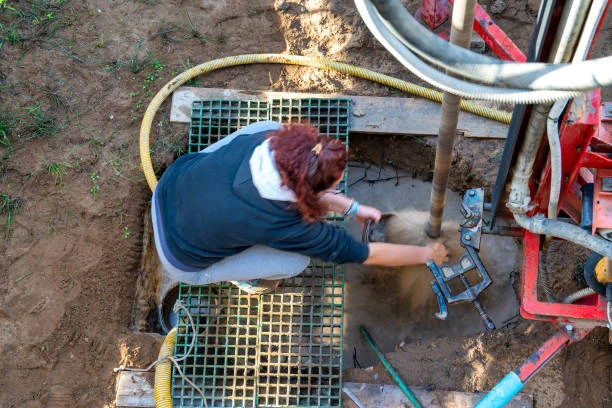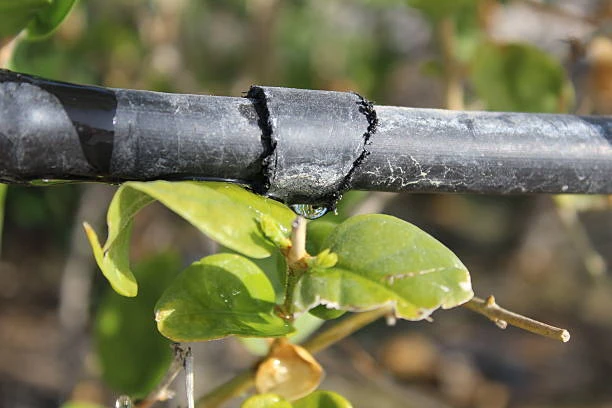Water pipe In a proactive move to ensure public health and safety, the City of Fort Myers has recently mailed letters to residents urging them to check the materials used in their home water pipes. This initiative aims to address potential health risks associated with certain plumbing materials, particularly lead, which can leach into drinking water and pose serious health threats. In this article, we will explore the importance of checking water pipe materials, the risks associated with lead exposure, and the steps residents can take to ensure their drinking water is safe.
Understanding Water Pipe Materials
Water pipes have historically been made from various materials, each with its own set of advantages and disadvantages. Common materials include:
1. Lead Pipe
Homes built before the 1980s are more likely to have lead plumbing.
2. Copper Pipes
Copper pipes are a popular choice for plumbing due to their durability and resistance to corrosion. However, copper pipes can also develop pinhole leaks over time, especially in areas with acidic water.
3. PVC and PEX Pipes
Polyvinyl chloride (PVC) and cross-linked polyethylene (PEX) pipes are newer materials that have gained popularity in recent years. These materials are generally considered safe and do not pose the same risks as lead or copper.
The Risks of Water pipe Lead Exposure
Lead exposure is a serious public health concern, especially for vulnerable populations such as children and pregnant women. Here are some key points to understand about the risks associated with lead in water:

1. Health Effects
Lead exposure can lead to a range of health issues, including developmental delays in children, learning difficulties, and behavioral problems. In adults, lead exposure can cause cardiovascular issues, decreased kidney function, and reproductive problems.
2. Sources of Lead in Drinking Water
Lead can enter drinking water through the corrosion of lead pipes or lead solder used in plumbing systems. When water sits in lead pipes for extended periods, it can leach lead into the water supply, posing a risk to anyone who consumes it.
3. Water pipe Vulnerable Populations
Children, pregnant women, and individuals with compromised immune systems are particularly at risk from lead exposure. It is crucial for these groups to take precautions to minimize their risk.
Importance of Checking Water Pipe Materials
The recent letters sent to Fort Myers residents serve as a reminder of the importance of checking water pipe materials in homes. Here are several reasons why this is crucial:
1. Water pipe Identifying Potential Risks
By checking the materials used in their water pipes, residents can identify potential risks associated with lead exposure. Knowing whether lead pipes are present allows homeowners to take appropriate action to protect their families.
2. Water pipe Taking Preventive Measures
If lead pipes are identified, residents can take preventive measures to reduce lead exposure. This may include flushing pipes before use, installing water filters, or replacing lead pipes altogether.
3. Water pipe Improving Public Health
By encouraging residents to check their water pipe materials, the City of Fort Myers is taking a proactive approach to improving public health. Reducing lead exposure in the community can have significant long-term benefits for overall health and well-being.
Steps to Check Water Pipe Materials
Residents of Fort Myers can take several steps to check the materials used in their water pipes:
1. Check the Age of Your Home
Homes built before 1986 are more likely to contain lead plumbing materials. If your home falls into this category, it is essential to investigate further.
2. Inspect the Pipes
Lead pipes are typically dull gray and can be scratched to reveal a shiny surface underneath. If you notice this characteristic, it is likely that you have lead pipes in your home.
3. Contact a Professional
If you are unsure about the materials used in your plumbing system, consider hiring a licensed plumber to assess your pipes. They can provide guidance on any necessary actions to ensure your water is safe.
Testing Your Water pipe for Lead
To ensure the safety of your drinking water, it is advisable to have your water tested for lead. Here are the steps to follow:
1. Obtain a Testing Kit
Local health departments or environmental agencies often provide water testing kits. You can also purchase a kit from a reputable supplier.
2. Collect a Sample
Follow the instructions provided with the testing kit to collect a water sample. It is often recommended to take samples after the water has been sitting in the pipes for several hours to get an accurate reading of lead levels.
3. Send the Sample for Analysis
Once you have collected the sample, send it to the designated laboratory for analysis. The results will indicate whether lead is present in your drinking water and at what levels.
What to Do If Water pipe Lead Is Detected
If your water test reveals lead levels above the EPA’s action level of 15 parts per billion (ppb), it is essential to take immediate action:
1. Stop Using Tap Water for Drinking and Cooking
Until the issue is resolved, avoid using tap water for drinking, cooking, or preparing baby formula. Use bottled water or water from a safe source.
2. Flush Your Pipes
If you have not used your tap water for several hours, flush your pipes by running the water for several minutes before using it. This practice can help reduce lead levels in the water you consume.
3. Consider Water Filtration
Installing a water filtration system that is certified to remove lead can provide an additional layer of protection. Look for filters that meet NSF/ANSI Standard 53 for lead reduction.
4. Replace Lead Pipe
The most effective long-term solution is to replace lead pipes and fixtures with safer alternatives. Consult a licensed plumber to discuss your options and the associated costs.
Community Resources and Water pipe Support
The City of Fort Myers provides resources to help residents understand the risks associated with lead in water pipes. Residents can access information on testing, resources for replacing lead pipes, and assistance programs for low-income households. Staying informed and proactive about water safety is crucial.
Conclusion
The letters sent to Fort Myers residents about checking water pipe materials highlight the importance of water safety and public health. By understanding the risks associated with lead exposure, identifying lead pipes in their homes, and testing their water, residents can take the necessary steps to protect themselves and their families. If you suspect lead in your plumbing, act promptly to ensure your drinking water is safe.
Frequently Asked Questions (FAQs)
1. How can I tell if my home has lead pipes?
Lead pipes are typically dull gray and can be scratched to reveal a shiny surface underneath. Homes built before 1986 are more likely to have lead plumbing.
2. What should I do if my water tests positive for lead?
If lead is detected in your water, stop using tap water for drinking and cooking, flush your pipes, consider water filtration, and consult a plumber about replacing lead pipes.
3. What are the health effects of lead exposure?
Lead exposure can cause developmental delays in children, cardiovascular issues in adults, and other serious health problems.
4. How often should I test my water for lead?
It is advisable to test your water for lead at least once a year, especially if you live in an older home or have concerns about your plumbing.
5. Are there any government programs to help with lead pipe replacement?
Yes, many local governments offer resources and assistance programs for residents needing help with lead pipe replacement. Check with the City of Fort Myers for available options.


















